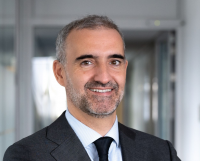Urban Angehrn, the former chief executive of the Swiss financial regulator, FINMA, recently stepped down, citing the toll on his health from “permanent stress levels,” months after orchestrating the rescue of Credit Suisse by UBS. However, it is not only people in high-profile jobs who experience burnout.
A few years ago, a younger version of myself also experienced burnout.
Signs of Burnout
According to some researchers, more than 50% of us have experienced burnout symptoms at some point in our careers. In my case, I felt constantly exhausted, had regular headaches, persistent muscle pain, and was barely eating or sleeping.
Worst of all, though, was the impact it had on me as a person; I lost some sense of humanity and acted in anti-social ways toward friends, family, partners, and colleagues. I was rude, inconsiderate, and had an extremely short temper. I didn’t like who I had become.
Impact on Employers
Employers suffer as well when employees experience burnout symptoms; more sick days are taken, internal conflicts grow, and the quality of work delivered to clients drops. Clients slowly pick up on these issues and leave. Burnout impacts the bottom line, not only our health.
During my burnout, I would have some arguments with colleagues, and on one occasion, I even lashed out at a client. Eventually, I woke up crying one day and was unable to continue on the same path. The doctor signed me off immediately for two weeks.
Taking Responsibility
Initially, while I rested at home for the first week, I was extremely resentful of my employer. I felt that they were responsible for my deteriorating mental health. They were the ones who pushed me to my limits and let me suffer. I no longer felt the same after educating myself about mental health.
I was eventually able to identify three reasons that got me into that situation.
My biggest realization was that I had severely neglected my well-being over an extended period. I would leave the office late, go on long runs, eat poorly, and stay up late watching Netflix. I was completely oblivious to the benefits (mental and physical) of getting rest and recharging.
Then I recognized that I was overthinking, almost catastrophizing, the consequences of not delivering our projects on time to clients. It was almost as if I was afraid of being punished, even though many of the issues were out of my control. Probably a reflex I learned while growing up.
Lastly, I realized that the job might not be for me. I had deviated too far from my professional goals and was experiencing professional disillusionment. I needed a change. I knew that I wanted to try a sales job, but I was unable to detach from my day-to-day.
I soon changed company and landed that sales job.
Lessons Learned
Ultimately, it was an experience that helped me grow. I learned that every once in a while, I need to step back and evaluate how things are going. It is too easy to get caught up in life and believe that things cannot change. If you eat, sleep, and respect your overall well-being, they absolutely can.
Gregory Kennedy is a columnist for Investment Officer Luxembourg. His columns appear every other Wednesday. He also works as a business development manager at Finsoft Luxembourg.
Related articles:
















